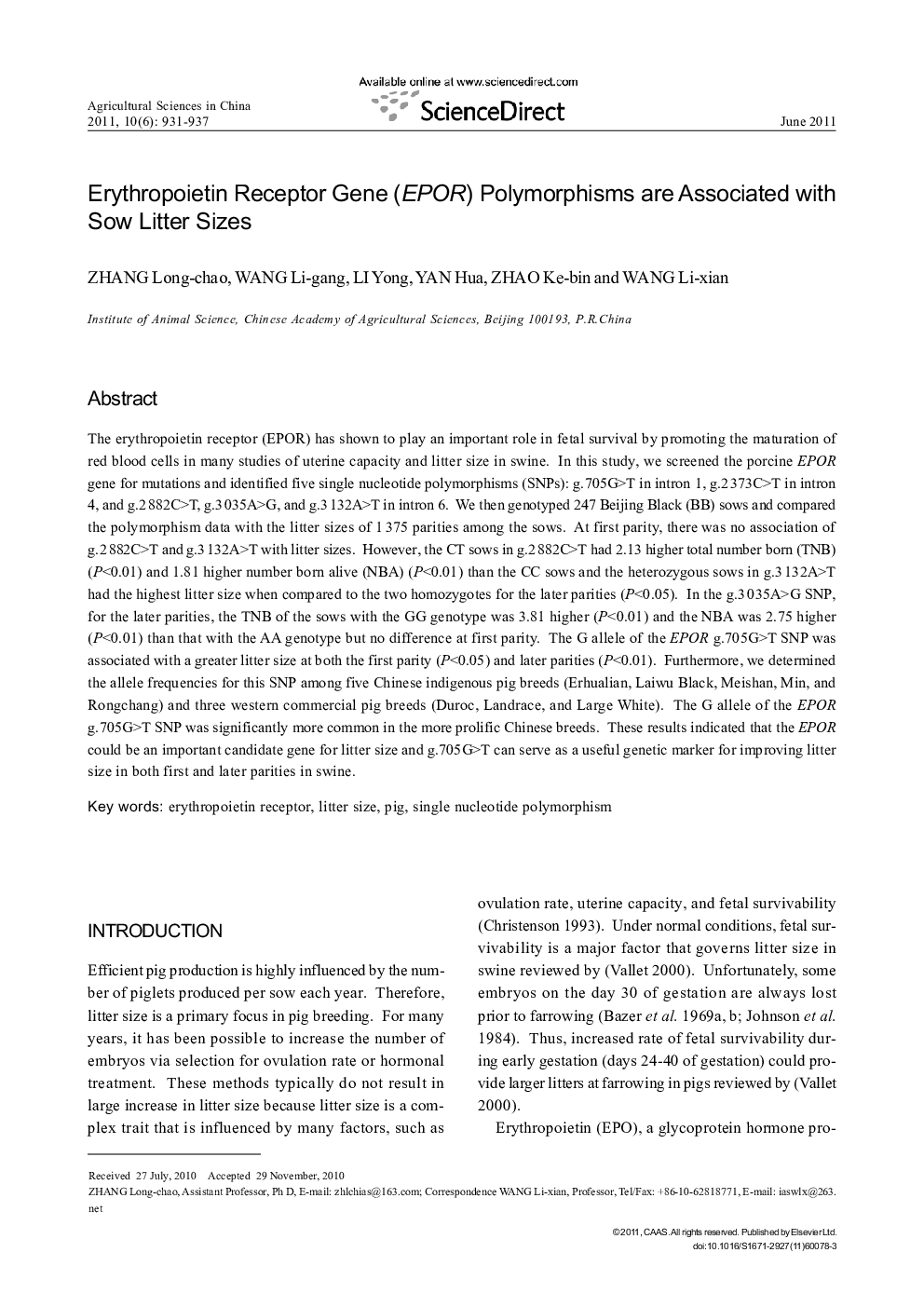| Article ID | Journal | Published Year | Pages | File Type |
|---|---|---|---|---|
| 4489949 | Agricultural Sciences in China | 2011 | 7 Pages |
The erythropoietin receptor (EPOR) has shown to play an important role in fetal survival by promoting the maturation of red blood cells in many studies of uterine capacity and litter size in swine. In this study, we screened the porcine EPOR gene for mutations and identified five single nucleotide polymorphisms (SNPs): g.705G>T in intron 1, g.2 373C>T in intron 4, and g.2 882C>T, g.3 035A>G, and g.3 132A>T in intron 6. We then genotyped 247 Beijing Black (BB) sows and compared the polymorphism data with the litter sizes of 1 375 parities among the sows. At first parity, there was no association of g.2 882C>T and g.3 132A>T with litter sizes. However, the CT sows in g.2 882C>T had 2.13 higher total number born (TNB) (P<0.01) and 1.81 higher number born alive (NBA) (P<0.01) than the CC sows and the heterozygous sows in g.3 132A>T had the highest litter size when compared to the two homozygotes for the later parities (P<0.05). In the g.3 035A>G SNP, for the later parities, the TNB of the sows with the GG genotype was 3.81 higher (P<0.01) and the NBA was 2.75 higher (P<0.01) than that with the AA genotype but no difference at first parity. The G allele of the EPOR g.705G>T SNP was associated with a greater litter size at both the first parity (P<0.05) and later parities (P<0.01). Furthermore, we determined the allele frequencies for this SNP among five Chinese indigenous pig breeds (Erhualian, Laiwu Black, Meishan, Min, and Rongchang) and three western commercial pig breeds (Duroc, Landrace, and Large White). The G allele of the EPOR g.705G>T SNP was significantly more common in the more prolific Chinese breeds. These results indicated that the EPOR could be an important candidate gene for litter size and g.705G>T can serve as a useful genetic marker for improving litter size in both first and later parities in swine.
